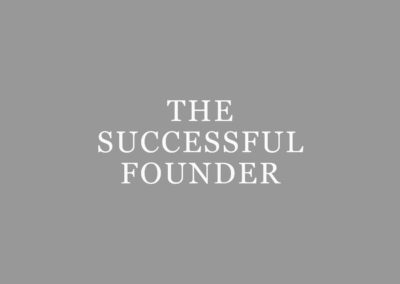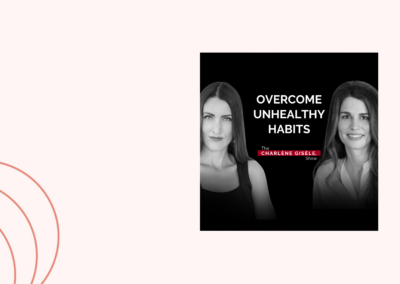Fresh From The Continent Series : Sophrology and Cancer Support
Welcome to the first article in a series called “Fresh from the Continent”. We look at Sophrology trends and news from Continental Europe and offer an overview and analysis of Sophrology applications in daily life.
In Continental Europe complementary therapies like Sophrology are increasingly being used to improve wellbeing, particularly in France where demand for relaxation therapies has increased by 105% from 2011 to 2014.
According to Doctor Raymond Abrezol we still have to explore our power of imagination and visualisation, particularly in the context of Sophrology and cancer. Our minds can create vivid images and foresee positive outcomes. With Sophrology you can learn to direct your imagination in a positive way, which will help you remove obstacles along your path like, for example, self-doubt.
Visualisation and relaxation therapies like Sophrology can provide valuable emotional support for those dealing with any form of cancer and during all the stages of cancer treatment: from surgery to radiotherapy or chemotherapy, to hormone therapy.
The physical side-effects of chemotherapy can be extreme. Having a calm mental attitude as you get ready to face these medical procedures can be very comforting.
Repeating Sophrology visualisation and relaxation exercises every day can make a huge difference to morale.
From the initial shock of the diagnosis, to the acceptance and awareness of the illness, Sophrology accompanies a cancer patient during these delicate times providing important emotional support. Sleep can get disrupted during chemotherapy and rest is essential for the healing process. Through a series of Sophrology exercises, particularly when practising at home before going to sleep, you can learn to focus on the present moment, step aside from worries about the future and the inability of getting a good night’s sleep.
Acceptance, in particular, can make a huge difference when dealing with cancer. While the initial shock of the diagnosis can be very upsetting, the conscious decision of being aware of your condition puts you more in control.
It is important for cancer patients to feel in control and feel good about their bodies. Sophrology can be used alongside traditional medicine and other complementary therapies to help deal better with the discomfort of pain, and emotional issues like low self-esteem. Sophrology can help you prepare mentally for an impending surgical procedure.
By refocusing on the “here and now”, there is a clear shift from an attitude of worry to a sense of empowerment. The aim is to feel more in control of one’s life and feelings.
How Sophrology Can Support Cancer Patients
A regular Sophrology practice helps you feel more positive and connected. This can help you to:
• lower anxiety
• feel more relaxed
• aid better sleep
• accept the treatment (surgery, chemiotherapy)
• recognise and manage emotions like stress and worry
• increase self-awareness
Sophrology works alongside other treatments and should not be considered as a substitute for medical treatment.
The Institut Curie in France conducted a study in 2015 with 41 breast cancer patients undergoing chemotherapy who practised relaxation with the help of a Sophrology nurse. A group of women started the relaxation exercises during cancer treatment while another group started towards the end of their chemotherapy, continuing afterwards.
The results of the study found that in the first group levels of anxiety were much reduced with an overall improvement in the quality of life, particularly with regards to insomnia and fatigue.
In the second group, relaxation therapy helped women reduce insomnia, nausea and anxiety, and like the other group their overall quality of life was improved. To read the article, click here.
Sophrology is a useful tool to help empower and relax you. This in turn can help diminish the impact of constant pain as you learn to shift your focus.
Hypnosis has been used at the Institut Curie in Paris as a breakthrough technique for sedation before surgery. Instead of using general anesthetic, a patient can choose local anesthetic and hypnotherapy (“hypnosedation”). The Institut Curie offers this type of sedation for people who can be at risk if given general anesthesia or those who want to have a faster recovery from surgery.
Relaxation therapy can also change the dynamic between doctor and patient establishing an environment for collaboration and trust.
How BeSophro Can Help
Dominique, founder of BeSophro, studied with Dr Raymond Abrezol, who practised Sophrology and introduced it in Switzerland. Dr Abrezol contibuted to improving the athletic performance of Olympic Swiss ski champions and sports people in various disciplines.
Offering both face-to-face and Skype sessions, BeSophro can give you the tools to help you face challenging situations: dynamic relaxation exercises, guided visualisations and breathing exercises can help you feel more grounded in the present moment and more in charge.
To book an appointment please email [email protected]
Testimonial from Diana, BeSophro Client, 2016:
I began my Sophrology journey 4 months after being diagnosed with ovarian cancer. I had undergone surgery immediately following diagnosis, and began chemotherapy a month later. At the point that I took up Sophrology, I was struggling with a sense of immense vulnerability and the unpleasant side effects from the chemo. I had recently learnt that my condition was chronic rather than curable, and this was weighing heavily upon my consciousness.
I did not know what to expect from my sessions with Dominique, but it immediately became clear that I had the autonomy to choose the direction of the sessions. This became increasingly important as I began to recognise how much of a victim I felt myself to be as a result of my unexpected illness. Dominque would somehow – to my continuing amazement – weave together the various strands of our initial discussion each week, into a coherent set of breathing, relaxation and visualisation exercises designed to restore peace and harmony into my consciousness. In this way, I was able to re-empower myself and not feel that I was at the mercy of the disease. As a result, over a period of time, a kind of acceptance of my condition has surfaced in me, so my inner dialogues are not characterised by a futile sense of outrage and injustice.
Learning to not spiral into panic-laden scenarios has been a recurring theme for me, and the exercises have continued to be immensely helpful in grounding me in the present. At the same time, Sophrology taught me how to confront the future (for example, my forthcoming chemo sessions, and the self that would be returning to work in a few months). This took away some of the distaste I would feel prior to each chemo session, as well as gave me a positive and optimistic lens through which to view my future self. At the time of my individual sessions, I was still experiencing pain from the surgery. I didn’t really believe that anything short of medication could help me with this, so the techniques Dominique introduced were a complete revelation. These took quite a bit of practice, but were well worth the effort.
Given the unpredictability of my disease, the stress and anxiety of the unknown can still suddenly ambush me. Once I recognise that I am in a state of threat, I can dip into my Sophrology toolbox for an exercise to restore a sense of calm. This can be something I do quickly if, for example at work – such as a visualisation or breathing exercise – or devote some 20 minutes or so to one of the bespoke guided exercises that we recorded in the course of my sessions. The latter is great for those nights when sleep threatens to elude me!
All in all, Sophrology has been a transformative experience for me. The empathy and gentleness inherent in Dominique’s approach have been pivotal in motivating me to revisit the guided exercises, even though there are times when it feels easier to stay in a distressed state. Above all, I have found the courage to liberate myself from the tyranny of an uncertain future.
Sources:
http://www.20minutes.fr/sante/1764391-20160112-pages-jaunes-francais-toujours-plus-friands-medecines-alternatives
http://www.alain-giraud.com/2013/05/20/la-sophrologie-c-est-comme-un-bou%C3%A9e-pour-ne-pas-couler/
http://www.onmeda.fr/medecines-douces/cancer-et-sophrologie.html
http://www.e-sante.fr/sophrologie-pour-mieux-vivre-cancer/actualite/335
http://curie.fr/actualites/sophrologie-avantage-certain-patientes-chimiotherapie-006848
http://www.zoomdici.fr/actualite/Le-Top-3-des-medecines-douces-en-Haute-Loire-id148936.html
http://www.francedimanche.fr/conseils-pratiques/conseils-pratiques-bien-etre/contre-nos-maux-se-jette-leau%E2%80%89/
http://www.la-croix.com/Sciences-et-ethique/L-hypnose-medicale-nouvelle-alliee-contre-la-douleur-2015-03-23-1294224
http://www.ladepeche.fr/article/2016/01/18/2257901-premier-centre-ressource-midi-pyrenees-va-voir-jour.html
http://www.huffingtonpost.fr/catherine-aliotta/la-sophrologie-une-aide-accompagnement-cancer_b_8663654.html
http://www.santemagazine.fr/le-blog-expert-de-catherine-aliotta/sophrologie-une-aide-pour-vivre-son-cancer-en-etant-moins-stressee-61658.html
https://en.wikipedia.org/wiki/Sophrology#Dr_Raymond_Abrezol



